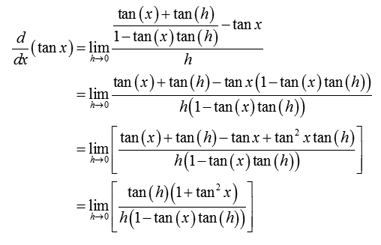

The general derivative of exponential function a x is given by a x ln a. What is the General Derivative of Exponential Function?

Yes, the derivative of exponential function e x is the exponential function e x itself. Is the Derivative of Exponential Function e x the Exponential Function? Since the first derivative of exponential function e x is e x, therefore if we differentiate it further, the derivative will always be e x.
#Derivative of log x proof how to#
We know that ln e = 1 and if a = e, the derivative of exponential function e x is given by e x ln e = e x How to Find the nth Derivative of Exponential Function e x? so is the logarithm easier to do now that we know the derivative of the. The derivative of the exponential function a x is given by f'(x) = a x ln a. Yes it does, but we will prove this property at the end of this section. Derivative of natural logarithmic functions: Theorem 8. Derivative of trigonometric functions: 12. The derivative of each term containing y will be followed by. Why is the Derivative of Exponential Function e x itself? Derivative of an implicit function: In equations containing x and y, if an equation of y is not solved for, then y is called an implicit function of x. The derivative of exponential function e x is the function itself, that is, if f(x) = e x, then f'(x) = e x. (Section 3.4: Derivatives of Trigonometric Functions) 3.4.3 We conjecture that gx () sinx.If f is the sine function from Part A, then we also believe that fx () gx () sinx.We will prove these in Parts D and E. The derivative of the second term is as follows, using our formula: (dy)/(dx)(log2e) (1/x)(log2e)/x The term on the top, log 2 e, is a constant. What is the Derivative of Exponential Function e x? The first term, log 2 6, is a constant, so its derivative is 0. The derivative of exponential function f(x) = a x, a > 0 is the product of exponential function a x and natural log of a, that is, f'(x) = a x ln a. However, we can generalize it for any differentiable function with a logarithmic. To prove (i), note that x log x Vx > 0 is the inverse of the natural. Derivatives of logarithmic functions are mainly based on the chain rule. Since we know how to differentiate exponentials, we can use implicit differentiation to find the derivatives of ln(x) and loga(x). But, if x, : f(y), the injectivity and continuity of f' imply that (x,) is a. FAQs on Derivative of Exponential Function What is the Derivative of Exponential Function? We define log functions as the inverses of exponentials: y ln(x) xe y.


 0 kommentar(er)
0 kommentar(er)
